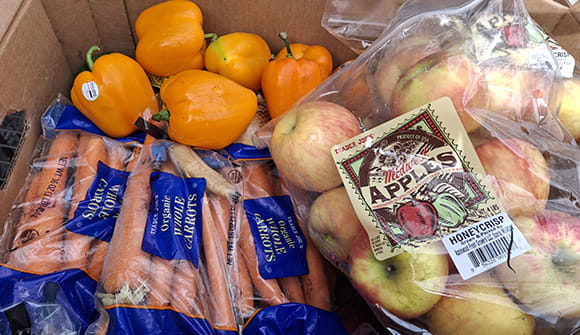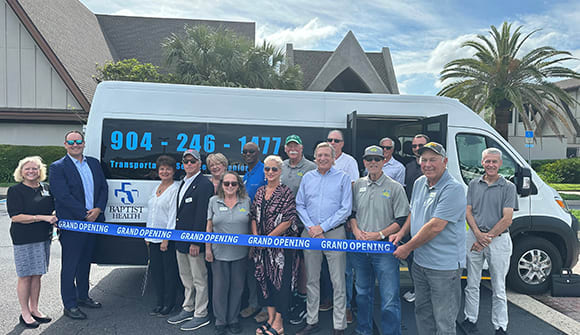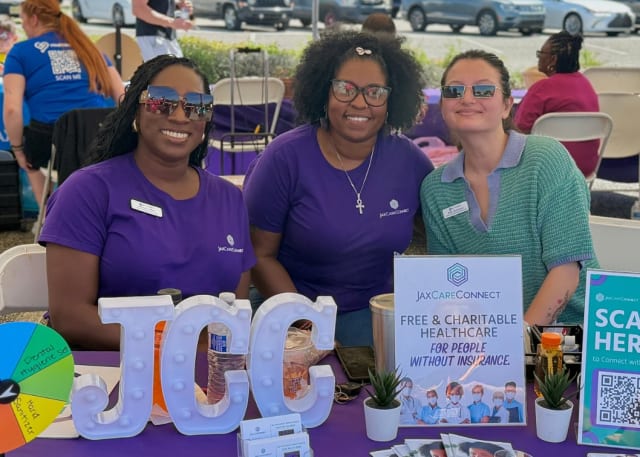Helping to strengthen our communities
Northeast Florida nonprofits collaborate to improve people’s lives and access to health care and other needs.
Article Author: Deborah Circelli
Article Date:

When it comes to a lack of access to food, transportation and mental health services, Northeast Florida has higher rates than the state and nation.
Baptist Health collaborates with others in the community to improve those numbers.
The Community Health Needs Assessment (CHNA) is a commitment by local nonprofit hospitals to improve health outcomes in the Northeast Florida communities we serve. In addition to Baptist Health, the partnering health systems include Ascension’s St. Vincent’s, Mayo Clinic, University of Florida Health and Brooks Rehabilitation.
For the 2025 CHNA, Baptist Health, along with local nonprofit health systems serving Northeast Florida, collected data to determine the most significant community health needs. That in-depth analysis included 72 interviews, surveys and community conversations; 27 listening sessions with community members, and 21 key stakeholder meetings. A comprehensive needs data analysis also looked at hundreds of data providers and data sets.
The four health needs prioritized across Duval, Clay, St. Johns, Nassau and Baker counties are:
- Access to care: health insurance and transportation
- Housing: housing cost burden and homelessness
- Mental health: access to mental health care
- Food environment: access to healthy food and food insecurity
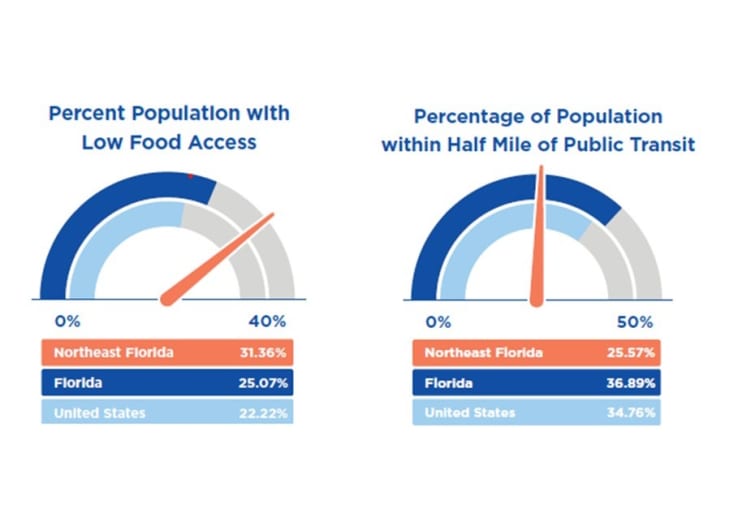
Community Health Needs Assessment graphic on comparison of Northeast Florida compared to the state and nation.
“Consistent with Baptist Health’s mission, we focus on improving the health and well-being of our most vulnerable community members by reaching them where they live, work, pray and learn,” said Katie Ensign, vice president of Community Impact for Baptist Health.
Hospital leaders at Baptist Medical Center Jacksonville, Wolfson Children’s Hospital, Baptist Medical Center Clay, Baptist Medical Center Beaches, Baptist Medical Center South and Baptist Medical Center Nassau also determined which areas of need in their communities to focus on over the next three years.
Baptist Jacksonville is addressing transportation and food environment concerns. While 39% of the population in Duval County lives within a half mile of public transit, more than 650,000 people live farther than a half mile. About 30% of the population in Duval County has low food access compared to the state and national averages of 25% and 22%, respectively.
“Lack of access to healthy food and transportation are concerns that impact our community and often lead to higher risk for poor health outcomes,” said Nicole Thomas, MHA, FACHE, Baptist Jacksonville hospital president.
The health needs assessment implementation for the St. Johns County area will also address transportation and food environment, considering 29% of St. Johns County residents have low food access.
Only 5% of St. Johns County residents live within a half mile of public transit (Florida average is 37% and the U.S. average is 35%). The availability of grocery stores in both counties is also limited compared to national benchmarks.
“Reliable transportation and access to nutritious food are fundamental to health and dignity,” said Jarret Dreicer, MHA, MS, FACHE, Baptist Beaches hospital president. “By addressing these challenges head-on, we strengthen not only the health of our patients, but the vitality of the entire Beaches community.”
Mental health, in addition to access to healthy food, was also selected as a priority for the Baptist South service area. Kyle Dorsey, FACHE, hospital president for Baptist South, said the availability of mental health providers in Duval and St. Johns counties is much lower than in the U.S., with a combined rate of 150 providers per 100,000 population compared to 314 per 100,000 nationally.
“As the largest health care provider in Northeast Florida, we are committed to building capacity, supporting programs and generating knowledge to help improve access to these much-needed services,” Dorsey said.
Wolfson Children’s will work with organizations to help address health insurance, mental health and food environment.
“We know that health outcomes are not determined by a hospital stay, but by the environment in which a child lives, learns and plays,” said Allegra Jaros, MBA, president of Wolfson Children’s. “To impact health, we have to understand that environment, and the Community Health Needs Assessment is a great tool to do that work.”
Baptist Clay and Baptist Nassau are also addressing the concern of access to healthy food and food insecurity, in addition to mental health.
In Clay County, about 35% of the population – around 66,000 people – lacks reliable access to food. Baptist Clay collaborates with organizations to ensure that residents in need have access to healthy food and that mental health resources are provided for pediatric patients.
“Through partnerships and effective treatments, we empower our community to give children the ability to live a productive life, which will help them be successful at home, in school, and in everyday living,” said Ed Hubel, FACHE, Baptist Clay hospital president.
Nassau County also has a higher percentage of people with low access to food at 44%. Baptist Nassau is working alongside community partners such as Barnabas, Council on Aging and AgeWell to create meaningful change.
"At Baptist Nassau, our Community Health Needs Assessment is more than a report; it is a call to action,” said Tara Beth Anderson,MSN, RN, NE-BC, Baptist Nassau hospital president. “Together with our partners, we believe we can build a stronger, healthier future for all.”
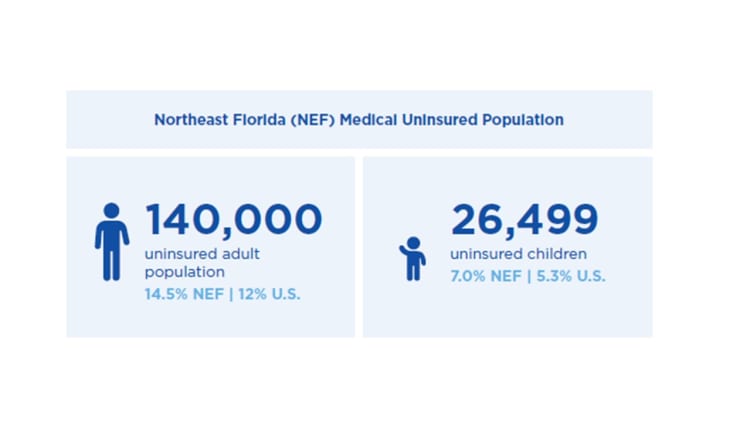
Learn more about Baptist Health’s commitment to improving health and well-being in Northeast Florida by working together with local nonprofit agencies to address a variety of needs. Read the Community Health Needs Assessment.
